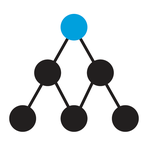Navigating the AI Frontier: Innovations and Challenges in Data and Security
November 21, 2024, 3:46 am

Location: United States, California, Santa Barbara
Employees: 1001-5000
Founded date: 2007
The world of artificial intelligence (AI) is a double-edged sword. On one side, it offers unprecedented opportunities for innovation and efficiency. On the other, it presents significant challenges, particularly in data management and security. Recent developments from Veritone and Thales highlight this duality, showcasing how companies are striving to harness AI's potential while grappling with its risks.
Veritone has recently launched its Data Refinery (VDR), a powerful tool designed to transform unstructured data into AI-ready assets. In an age where data is the new oil, VDR acts as a refinery, converting raw materials into valuable resources. This solution is not just about data transformation; it’s about empowering enterprises to unlock the full potential of their information. With the aiWARE™ platform at its core, VDR enables organizations to manage video, audio, and text data effectively. This capability is crucial as businesses seek to train sophisticated AI models that require diverse datasets.
The urgency of this innovation is underscored by a report from CB Insights, which warns that high-quality text data will become scarce by 2026. VDR steps into this gap, allowing companies to convert unstructured data into structured datasets suitable for training Large Language Models (LLMs) and Large Multimodal Models (LMMs). By centralizing and normalizing data from various sources, organizations can enhance their AI capabilities, from chatbots to advanced analytics.
In a landscape where data rights are increasingly contested, Veritone’s solution ensures that enterprises maintain control over their data. With features like enterprise-grade encryption and GDPR compliance, VDR not only facilitates innovation but also prioritizes security and ethical considerations. This dual focus is essential as companies navigate the complex waters of data privacy and security.
Meanwhile, Thales is tackling another pressing issue: the rise of deepfakes. As AI-generated content becomes more prevalent, the potential for misuse grows. Thales’s Friendly Hackers unit has developed a metamodel capable of detecting AI-generated deepfake images. This innovation is a response to the increasing use of deepfakes in disinformation campaigns and identity fraud. The metamodel aggregates various detection methods, assigning authenticity scores to images. It’s a digital watchdog in a world where visual deception is rampant.
The implications of deepfake technology are profound. Studies suggest that deepfakes could lead to significant financial losses, with Gartner estimating that 20% of cyberattacks in 2023 involved deepfake content. Thales’s metamodel aims to combat this threat by employing advanced techniques like neural networks and noise detection. By analyzing images for inconsistencies and visual artifacts, it provides a robust defense against identity fraud and manipulation.
Thales’s approach is multifaceted. The metamodel incorporates several detection methods, including the CLIP method, which connects images and text to identify discrepancies. The DNF method leverages diffusion models to detect AI-generated content by estimating noise levels. Additionally, the DCT method analyzes spatial frequencies to spot hidden anomalies in images. Together, these techniques form a comprehensive toolkit for identifying deepfakes.
As AI continues to evolve, the need for effective detection methods becomes increasingly critical. Thales’s work exemplifies the importance of innovation in the face of emerging threats. The company’s commitment to developing advanced countermeasures, such as unlearning and federated learning, highlights the proactive stance needed to safeguard AI systems.
The intersection of data management and security is where the future of AI lies. Companies like Veritone and Thales are at the forefront of this evolution, pushing the boundaries of what is possible while addressing the inherent risks. Their innovations reflect a broader trend in the industry: the need for responsible AI development.
As organizations harness the power of AI, they must also consider the ethical implications of their technologies. The balance between innovation and responsibility is delicate. Companies must ensure that their advancements do not come at the expense of privacy and security. This is where frameworks like Veritone’s VDR and Thales’s deepfake detection metamodel become invaluable. They provide the tools necessary to navigate the complexities of AI while maintaining a commitment to ethical practices.
In conclusion, the landscape of artificial intelligence is rapidly changing. Innovations like Veritone’s Data Refinery and Thales’s deepfake detection metamodel are paving the way for a future where data is managed effectively, and security is prioritized. As we move forward, the challenge will be to harness these technologies responsibly. The promise of AI is immense, but so are the risks. It is up to industry leaders to ensure that the journey into this new frontier is guided by principles of security, ethics, and innovation. The future of AI is bright, but it requires vigilance and responsibility to ensure it shines for everyone.
Veritone has recently launched its Data Refinery (VDR), a powerful tool designed to transform unstructured data into AI-ready assets. In an age where data is the new oil, VDR acts as a refinery, converting raw materials into valuable resources. This solution is not just about data transformation; it’s about empowering enterprises to unlock the full potential of their information. With the aiWARE™ platform at its core, VDR enables organizations to manage video, audio, and text data effectively. This capability is crucial as businesses seek to train sophisticated AI models that require diverse datasets.
The urgency of this innovation is underscored by a report from CB Insights, which warns that high-quality text data will become scarce by 2026. VDR steps into this gap, allowing companies to convert unstructured data into structured datasets suitable for training Large Language Models (LLMs) and Large Multimodal Models (LMMs). By centralizing and normalizing data from various sources, organizations can enhance their AI capabilities, from chatbots to advanced analytics.
In a landscape where data rights are increasingly contested, Veritone’s solution ensures that enterprises maintain control over their data. With features like enterprise-grade encryption and GDPR compliance, VDR not only facilitates innovation but also prioritizes security and ethical considerations. This dual focus is essential as companies navigate the complex waters of data privacy and security.
Meanwhile, Thales is tackling another pressing issue: the rise of deepfakes. As AI-generated content becomes more prevalent, the potential for misuse grows. Thales’s Friendly Hackers unit has developed a metamodel capable of detecting AI-generated deepfake images. This innovation is a response to the increasing use of deepfakes in disinformation campaigns and identity fraud. The metamodel aggregates various detection methods, assigning authenticity scores to images. It’s a digital watchdog in a world where visual deception is rampant.
The implications of deepfake technology are profound. Studies suggest that deepfakes could lead to significant financial losses, with Gartner estimating that 20% of cyberattacks in 2023 involved deepfake content. Thales’s metamodel aims to combat this threat by employing advanced techniques like neural networks and noise detection. By analyzing images for inconsistencies and visual artifacts, it provides a robust defense against identity fraud and manipulation.
Thales’s approach is multifaceted. The metamodel incorporates several detection methods, including the CLIP method, which connects images and text to identify discrepancies. The DNF method leverages diffusion models to detect AI-generated content by estimating noise levels. Additionally, the DCT method analyzes spatial frequencies to spot hidden anomalies in images. Together, these techniques form a comprehensive toolkit for identifying deepfakes.
As AI continues to evolve, the need for effective detection methods becomes increasingly critical. Thales’s work exemplifies the importance of innovation in the face of emerging threats. The company’s commitment to developing advanced countermeasures, such as unlearning and federated learning, highlights the proactive stance needed to safeguard AI systems.
The intersection of data management and security is where the future of AI lies. Companies like Veritone and Thales are at the forefront of this evolution, pushing the boundaries of what is possible while addressing the inherent risks. Their innovations reflect a broader trend in the industry: the need for responsible AI development.
As organizations harness the power of AI, they must also consider the ethical implications of their technologies. The balance between innovation and responsibility is delicate. Companies must ensure that their advancements do not come at the expense of privacy and security. This is where frameworks like Veritone’s VDR and Thales’s deepfake detection metamodel become invaluable. They provide the tools necessary to navigate the complexities of AI while maintaining a commitment to ethical practices.
In conclusion, the landscape of artificial intelligence is rapidly changing. Innovations like Veritone’s Data Refinery and Thales’s deepfake detection metamodel are paving the way for a future where data is managed effectively, and security is prioritized. As we move forward, the challenge will be to harness these technologies responsibly. The promise of AI is immense, but so are the risks. It is up to industry leaders to ensure that the journey into this new frontier is guided by principles of security, ethics, and innovation. The future of AI is bright, but it requires vigilance and responsibility to ensure it shines for everyone.

